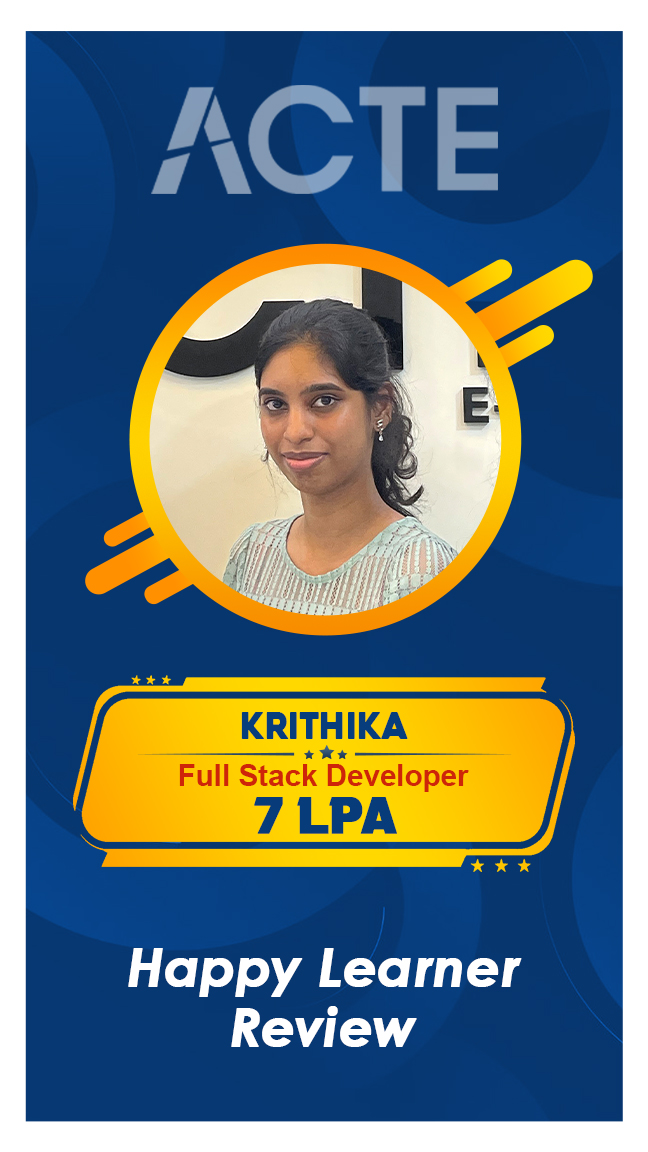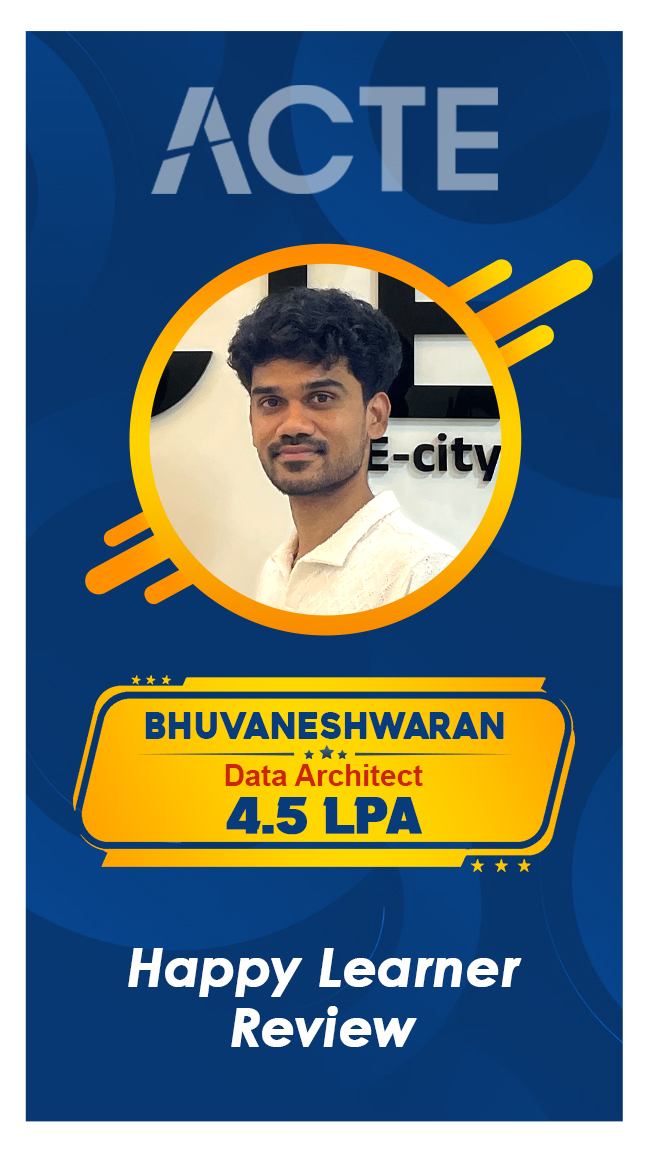A Comprehensive Java Course Overview
Our Java Online Course offer comprehensive Java Training covering everything from the basic to advanced concepts. Designed for both beginners and professionals, this course provides in depth knowledge of object oriented programming, data structures, algorithms and real world application development. Through practical, hands-on projects, students gain valuable experience in building scalable and efficient applications. Upon completion participants will receive a Java Certification Course, validating their skills and expertise in Java programming Our Java Placement support helps students connect with top companies ensuring a seamless transition from learning to career With expert instructors and a curriculum that keeps pace with industry trends, our Java Online Training equip you with the tools needed to succeed in the tech world.
Additional Info
Explore Future Developments in Java Course
- Cloud-Native Java Development:
With the growing demand for cloud based applications, Java developers will increasingly focus on building cloud native applications using platforms like AWS, Azure and Google Cloud. Java flexibility and scalability make it ideal for microservices and containerized applications which are crucial for cloud environments Learning cloud integration tools will become essential for future Java development.
- Microservices Architecture:
Java is widely used for developing microservices a key trend in modern application architecture This approach enables developer to break down large application into smaller independently deployable services. Java frameworks like Spring Boot & Spring Cloud will continue to evolve, helping developers create efficient, scalable, and resilient microservices.
- Artificial Intelligence (AI) Integration:
Java role in AI development is set to grow with increased use in building machine learning models, natural language processing and neural networks Java libraries like Deeplearning4j and Weka are already popular and their usage is expected to expand as businesses continue to adopt AI technologie for data driven decision making.
- Reactive Programming:
As systems become more complex and require real time processing reactive programming will gain prominence. Java reactive programming frameworks, like Project Reactor and RxJava, help developers create responsive, resilient and elastic applications This trend will continue to drive the need for Java developers skilled in asynchronous programming and event-driven architectures.
- Internet of Things (IoT):
Java is increasingly being used in IoT development due to its cross-platform capabilities and security features. With the growth of connected devices Java ability to run on various hardware platforms from sensors to gateway makes it ideal for IoT solution Java developer will be in high demand to build scalable IoT applications that can process and analyze large volumes of data.
- Serverless Architecture:
Java developers will embrace serverless computing where the cloud provider manages the infrastructure and developers focus on code Serverless platforms like AWS Lambda allow Java developers to build applications without worrying about server management This shift will make it easier to scale applications while lowering costs and improving development efficiency.
- Blockchain Development:
Blockchain technology is expanding beyond cryptocurrency into industries like supply chain, finance and healthcare. Java robustness and scalability make it a strong contender for developing blockchain solutions Java developers will increasingly use frameworks like Hyperledger and Ethereum to build decentralized applications and smart contracts driving innovation in the blockchain space.
- Big Data Technologies:
As big data continues to grow Java ability process and analyze large datasets will remain essential. Java frameworks like Apache Hadoop and Apache Spark are widely used for big data applications. Future Java developers will need expertise in integrating big data tools and optimizing performance for large-scale data processing and analytics.
- Artificial Neural Networks (ANNs):
Machine learning & deep learning become more advance Java developers will increasingly use neural networks for complex applications. Java libraries like DL4J (DeepLearning4j) will continue to gain traction for building neural network models. These technologies will help Java developers work on predictive models, image recognition and other AI driven applications.
- Cross-Platform Development with Java:
With the rise of cross platform development Java will continue to be a go to solution for building application that run on multiple devices and platforms. Tools like JavaFX and frameworks like GraalVM are pushing Java towards even more diverse platforms. This trend will see Java developers using it to build application for mobile, desktop and web environment seamlessly.
Building Tools and Techniques with Java Course
- Eclipse IDE:
Eclipse is one of the most widely used Integrated Development Environments (IDEs) for Java development It provide developer with powerful tools for code editing, debugging and testing. Eclipse supports Java plugins, which enhance its functionality and enable integration with various tools The IDE support for both Java SE and Java EE makes it a versatile tool for Java developers It also provides a strong ecosystem for working with version control systems like Git & SVN.
- IntelliJ IDEA:
IntelliJ IDEA is another popular IDE for Java development known for its intelligent coding assistance, advanced debugging, and productivity features. It offers features like code completion, refactoring tools, and built-in version control, making it ideal for both beginners and advanced developers IntelliJ IDEA supports Java, Kotlin, Groovy and many other JVM based languages Its user-friendly interface and extensive plugin support help developers work more efficiently It is widely appreciated for its performance and ease of use especially in enterprise environments.
- Apache Maven:
Apache Maven is build automation tool used primarily for Java project it simplifies process of managing project dependencie, building and packaging Java applications. Maven provides a standardized project structure and makes it easy to integrate with other tools like Jenkins and Git It also offers a central repository for downloading and managing project libraries Developers can automate their build processes, saving time and reducing human error during the development lifecycle.
- Gradle:
Gradle is a modern, open source build automation tool that is increasingly used in Java projects. It offers flexibility in defining build logic and is known for its performance and scalability Gradle combines the best features of Apache Ant & Apache Maven while also supporting languages like Groovy, Kotlin and Scala It allows developers to automate complex workflows and easily handle project dependencies Its integration with tools like Android Studio has made it a go to choice for mobile application development.
- JUnit:
JUnit is a widely-used testing framework for Java applications It is essential for Test Driven Development, providing developers with tools to write and run unit tests. JUnit supports assertions, annotations, and test runners, making it easier to write & execute automated tests. It integrates seamlessly with popular Java IDEs like Eclipse and IntelliJ IDEA As testing becomes more critical in modern software development JUnit remains a core technology in ensuring the reliability and stability of Java applications.
- Spring Framework:
The Spring Framework is open source framework that simplifies Java development by providing comprehensive infrastructure support It enables developers to build robust, scalable enterprise applications with features like dependency injection, aspect-oriented programming, and transaction management. The Spring ecosystem includes Spring Boot, Spring Security, and Spring Cloud, allowing developers to build microservices, secure applications, and cloud native solutions. Spring flexibility makes it a go to framework for building large-scale, maintainable Java applications.
- Hibernate:
Hibernate is a popular Object Relational Mapping framework that simplifies database interactions in Java applications. It enables developers to map Java objects to database tables reducing the complexity of SQL queries and database management Hibernate supports various databases and provides powerful tools for caching, lazy loadin and transaction management Its seamless integration with Spring Framework makes it valuable tool for building scalable, data driven applications Hibernate eliminates much of the boilerplate code associated with JDBC speeding up development.
- Apache Tomcat:
Apache Tomcat is open source web server & servlet container used to run Java web applications It provides a robust environment for executing Java servlets and JavaServer Pages enabling developers to deploy dynamic web applications. Tomcat is lightweight and highly configurable, making it suitable for small to medium sized Java applications It supports servlet and JSP specifications allowing for the development of secure scalable web applications Tomca wide usage and strong community support make it an essential tool for Java web development.
- Git:
Git is version control system widely used in Java development to track changes and manage code repositories It allows developers to collaborate efficiently on projects, keeping track of different versions and branches Git integrates seamlessly with Java IDEs like IntelliJ IDEA and Eclipse enabling easy source code management Developers can roll back to previous versions, create feature branches and resolve conflicts during collaboration Its distributed nature ensures that every developer has a full copy of the project repository, improving security and workflow efficiency.
- Docker:
Docker is platform for automating the deployment of applications inside lightweight, portable containers. Java developers can use Docker to package Java applications along with their dependencie, making it easier to deploy & manage them across different environments. Docker containerization helps developers create consistent environments reducing the it works on my machine problem. It is increasingly popular in the Java ecosystem for microservices architecture, CI/CD pipelines and cloud native application development Docker integration with Java builds more agile and scalable development workflows.
Essential Roles and Responsibilities of a Java Course
- Java Developer:
Java Developer are responsible for writing, testing and maintaining Java based applications. They focus on designing and implementing robust, scalable and high performance systems. Their role includes troubleshooting and debugging code, collaborating with cross functional team & ensuring the timely delivery of project. Developers must stay updated with the latest Java technologies and best practices. They work closely with project manager to ensure that client requirements are met effectively.
- Software Engineer:
Software Engineer working with Java are tasked with developing, deploying and maintaining software applications They design and code solutions to business problems, using Java programming and various software engineering practices. Their responsibilities include writing clean, maintainable code, conducting peer reviews, and testing for quality assurance. Engineers also create software documentation and participate in project planning. They work with teams to develop integrated systems that meet both functional and technical requirements.
- Java Architect:
Java Architect are responsible for designing the overall architecture of Java based applications They create high level plans, choose the right frameworks and ensure the solution's scalability and reliability. Architects define technical standards, ensure code quality, and lead teams of developers in implementing the architecture they work closely with stakeholders to understand business requirement and translate them into technical specifications. Their role also involves staying updated with emerging technologies to innovate and enhance system performance.
- Full Stack Developer:
Full Stack Developer working with Java have the responsibility of developing both the front-end and back-end components of web applications. They design user interfaces, handle server-side logic, and integrate databases into applications. Full Stack Developers need to have expertise in Java technologies like Spring and Hibernate as well as front-end frameworks like Angular or React. They ensure that all parts of the application work together seamlessly. Additionally they are responsible for optimizing performance of the application.
- Java Tester:
Java Testers play a critical role in ensuring the quality of Java-based application They are responsible for creating, executing and maintaining test plans and test cases to identify software bugs and issues Their role involves both manual and automated testing with tools like JUnit and Selenium Testers work closely with developers to fix defects and validate that new features meet quality standards They ensure that applications are free of error and function smoothly across various environments.
- DevOps Engineer:
DevOps Engineer are responsible for integrating & automating processes between development and IT teams They use Java tools & technologies to manage the infrastructure and ensure continuous integration and continuous deployment. Their role includes automating build processes, improving system reliability and monitoring application performance DevOps Engineers work with cloud technologies, containerization and Java frameworks like Spring Cloud for microservices They aim to ensure seamless development, deployment and scaling of Java applications.
- Java Support Engineer:
Java Support Engineers provide assistance in maintaining and troubleshooting Java based applications They work with development teams to identify and resolve performance bottlenecks, errors and outages in production environments. Their responsibilities include diagnosing software issues, providing solutions and ensuring the application runs smoothly Support Engineers work with monitoring tools and databases to ensure high availability and reliability They also manage incidents and collaborate with stakeholders to implement improvements.
- Database Administrator:
Database Administrators working with Java applications are responsible for managing & optimizing databases that store application data. They ensure the smooth functioning of SQL and NoSQL databases by writing queries and designing schemas that integrate efficiently with Java based applications. DBAs ensure data integrity, security and backup as well as performance tuning for large-scale applications. They collaborate with Java developers to optimize queries and ensure seamless data management. Their goal is to ensure that data is accessed quickly and securely within the system.
- Java Consultant:
Java Consultants offer specialized knowledge and advice on Java-related technologies to clients. They analyze clients' business needs, assess current systems and recommend solutions involving Java frameworks, tool and practices. Their role includes providing guidance on best practices, designing systems and implementing Java solutions that align with business objectives Consultants ensure that projects meet technical and business requirements efficiently They work closely with clients & development teams to ensure that all Java applications are optimized and scalable.
- Java Trainer:
Java Trainers are responsible for delivering training programs to individuals or teams looking to learn or improve their Java programming skills. They prepare and present course materials, conduct hands on coding sessions and evaluate student progress. Trainers ensure that the training programs cover all essential Java concept such as object oriented programming, data structures and web development frameworks. They also stay up to date with Java trends and continuously improve the training curriculum. The goal is equip learners with practical Java skills that they can apply in real world scenarios.
Best Companies Seeking Java Talent for Innovation
- Google:
Google a global leader in technology frequently hires Java professionals for their wide range of services, including cloud computing, search engines and artificial intelligence. Java developers are integral to Google systems particularly in scaling their cloud infrastructure and backend services. With cutting edge projects and vast opportunities for innovation, Java professionals are tasked with developing efficient, high-performance systems. Working at Google offers exposure to large-scale systems and the opportunity to work on some of the most sophisticated technological innovations worldwide. Google continues to be a top choice for Java experts, offering a dynamic work environment and career growth.
- Amazon:
Amazon, one of the largest e-commerce and cloud computing companies, hires Java developers to maintain and enhance its vast network of services, including AWS its cloud platform Java professionals play a crucial role in building scalable systems, cloud solutions and backend services for Amazon e-commerce platform. The company seeks developers who are adept in microservices and distributed systems, both of which are essential to its massive infrastructure Amazon offers its Java professionals opportunities to work on cutting edge technologie such as AI, big data & cloud services. The company fosters an innovative work culture that encourages professional growth.
- IBM:
IBM a pioneer in technology solutions, actively seeks Java professionals to help develop enterprise grade applications, cloud solutions and AI powered technologies. Java developers at IBM work on building cutting-edge software for clients across industries, from healthcare to finance. IBM offers a wealth of opportunities in areas like data analytics, cloud computing and AI all of which rely heavily on Java The company commitment to innovation and sustainability provides Java developers with a chance to be part of transformative global projects With IBM strong focus on learning and development, Java professionals thrive in an environment conducive to skill growth.
- Oracle:
As the creator of Java, Oracle is one of the leading companies seeking Java professionals. Oracle develops and maintains the Java platform and provides enterprise solutions that require deep expertise in Java development. Java professionals at Oracle work on enhancing database technologies, cloud applications, and enterprise solutions. The company offers Java experts an opportunity to work on innovative projects that shape the future of the Java ecosystem. Oracle’s global presence and leadership in the enterprise software space make it an attractive employer for Java developers looking to work on industry-leading technologies.
- Microsoft:
Microsoft hires Java professionals for roles that involve backend system development, cloud computing and enterprise solutions. Java developers at Microsoft often work with its Azure cloud platform, integrating Java with other Microsoft technologies to deliver scalable solutions. Java professionals play a key role in driving product innovations, improving system performance and ensuring efficient cloud services. Microsoft inclusive work culture and focus on professional growth offer Java developers the chance to work on high impact projects. The company fosters collaboration and innovation, providing ample opportunities for career advancement.
- Accenture:
Accenture is a global consulting firm that hires Java professionals to build enterprise solutions, assist clients with digital transformation, and implement Java-based systems. Java developers at Accenture work with leading-edge technologie such as cloud computing, big data & AI. They contribute to the design and development of complex software applications for clients across various industries. With focus on innovation and client success Accenture provides its Java professionals with opportunities to work on high-profile projects. The company’s collaborative environment helps developers stay ahead in a fast-evolving technology landscape.
- Cognizant:
Cognizant a global IT services provider actively recruits Java professionals to help clients transform their digital experiences. Java developers at Cognizant work on various projects, from developing cloud-native applications to automating business processes. The company focus on emerging technologies such as AI, blockchain and cloud computing ensures that Java professional have the opportunity to work with the latest tools and frameworks. Cognizant provides its developers with global exposure, career progression and opportunity to make an impact across diverse industries Their emphasis on innovation and agility makes it an ideal place for Java developers to grow.
- Tata Consultancy Services:
TCS is one of the leading global IT services firms that hires Java professionals to support digital transformation initiatives for a range of industries. Java developers at TCS are involved in enterprise level applications, developing solutions for clients in banking, retail, healthcare and more TCS provides its Java professionals with a dynamic and diverse work environment, promoting continuous learning and skill development. The company also emphasizes agility and innovation in its projects making it a great place for Java developers to work on impactful cutting-edge solutions. TCS’s strong global presence offers ample career opportunities for Java professionals.
- Capgemini:
Capgemini is global consulting and technology services company that offers Java professionals opportunities to work on cutting-edge projects in cloud computing, AI, and digital transformation. Java developers at Capgemini collaborate with teams to deliver complex, scalable solutions that help clients innovate and achieve business goals. The company provides a supportive environment for Java developers to enhance their technical skills while working on projects that shape industries worldwide. Capgemini's focus on innovation and client-centric solutions ensures Java professionals are always involved in high-impact, forward-thinking projects. Career growth and development opportunities are abundant at Capgemini.
- SAP:
SAP, a global leader in enterprise software, employs Java professionals to develop robust applications and solutions for businesses worldwide. Java developers at SAP work on a wide range of enterprise resource planning solutions and cloud based applications. The company focuses on integrating Java with technologies like machine learning, AI and blockchain to create efficient, scalable systems. Java developers at SAP are exposed to advanced technologies and are encouraged to contribute to the development of enterprise solutions that drive business transformation With a focus on innovation SAP provides a great environment for Java professionals to grow and excel in their careers.



















 Fees Starts From
Fees Starts From



















 Regular 1:1 Mentorship From Industry Experts
Regular 1:1 Mentorship From Industry Experts




